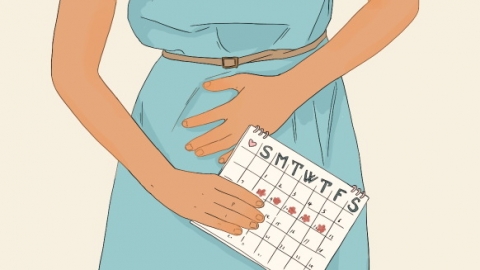Is it normal for menstruation to be delayed after sexual intercourse?
Generally speaking, whether it is normal for menstruation to be delayed after sexual intercourse depends on the specific circumstances, such as whether pregnancy has occurred or changes in physical condition. If discomfort arises, timely medical consultation is recommended. Detailed analysis is as follows:

If effective contraceptive measures were not taken during sexual intercourse, a delayed period may be caused by pregnancy. After pregnancy, the embryo implants, the ovaries stop ovulating, and the endometrium continues to thicken to support the development of the embryo, without shedding. This leads to a delayed period, which is considered a normal physiological phenomenon.
If reliable contraceptive measures were taken during sexual intercourse and pregnancy is ruled out, delayed menstruation is often related to changes in physical condition. For example, emotional stress or anxiety, irregular sleep patterns after sexual intercourse, or temporary endocrine disorders caused by fatigue can all affect ovarian hormone secretion, leading to delayed ovulation and ultimately a delayed menstrual period. These situations are usually temporary and fall within the range of relatively normal conditions.
When menstruation is delayed, pregnancy should first be ruled out through a pregnancy test. If pregnancy is excluded and the delay is short, adjusting sleep patterns and relaxing emotionally may help to observe changes. However, if the delay lasts more than one week or is accompanied by other discomforts, timely consultation with a healthcare professional is recommended to determine whether there is an underlying health issue.






